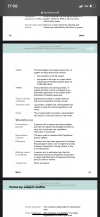The trouble is humans like to be imprecise. And reuse words, names, expressions by including variations into the meaning.
Originally, a train was a rake of wagons pulled or pushed. The method of pulling or pushing depending on what ‘power source’ was available. Be it people pushing, a horse or pony pulling, or a steam engine either pulling via a rope/line/cable or built as a locomotive. Some systems used gravity in one direction.
When the first proper passenger services and long distance freight trains started to run, the vast majority used a locomotive coupled to a number of carriages or wagons (or both). Hence the normal meaning of a train became “locomotive and a train of carriages or wagons”. The locomotive on it’s own not being a train.
Since then advances in technology have rather blurred things. The first self propelled carriages had a steam engine on board and they did not need a separate locomotive.
But the big change happened when electric motors or diesel engines were included in carriages. These became known as EMU and DMU. Originally intended for lightly used likes like branch lines, now nearly all new passenger trains are effectively EMU, DMU or bi-mode MU that can use both an external electric supply or the on board diesel engines.
In addition, the railways of the world have developed over time special engineering vehicles. The configuration of these varies widely. But typically they are self powered units.
These specialist engineering vehicles are however expensive. So ‘road’ vehicles have been adapted to travel on rails, hence now there is a class of road/rail vehicles. This includes hydraulic excavators (JCB / 360° rotation) type machines, dumper trucks, Land Rover ‘cars’, some types of road trucks, and powered trolleys (used for track inspection).
So the simplest definition of what is a train to a lay person is: “One or more vehicles that are connected together that travel on metal rails”.
For anything more complex I refer people to the following (almost universal) statement: there is the right way, the wrong way and the railway…
What is a train? Simple, something that goes to a train station
So, just to be pedantic, do you take your car to a car station? Do aircraft land and take off at an aircraft station? Do ships dock at a ship station? English is a bit special in that we like to be a bit random in some of our usage of combinations of words.
The normal usage in the U.K. (where railway as we know them were apparently invented) is that stations are called railway stations because the railway lines pass through or end at this place. Station on its own meaning ‘specified place’. Trains only briefly visit stations. Whereas the rails are permanent.
People often use the argument about bus stations. But originally busses were normally based at the bus station.
Of course informally train station is fine, and in some countries train station is the more common usage.
I was going to say that a train is simply a type of vehicle that runs along a railway line.
Then I remembered I had seen a landrover and lorry running along a railway line ....!
I’ve been on a road/rail Land Rover

As far as the mainland U.K. railways are concerned, as they are not reliably able to operate the train detection systems and don’t comply with various other regulations, no they are not classed as a train and are not permitted to operate outside of an engineering possession. Inside an engineering possession, they are classed as on-track vehicles. Although some on-track vehicles (including powered trolleys) can have one or more trailers attached. So in layman’s terms they are a train!
Are you confused yet!?!
if yes, remember there is the right way, the wrong way and the railway…


